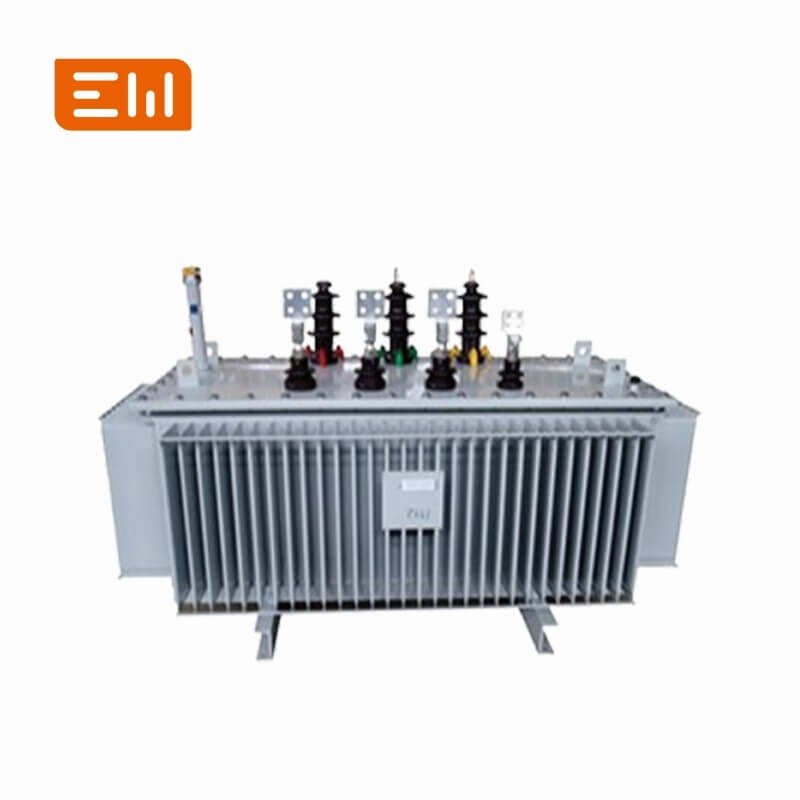Power Pole Transformer Selection for Overhead Distribution Upgrades
Utilities and cooperatives increasingly modernize overhead distribution networks with efficient power pole transformers. These units step down medium voltage for residential and light commercial loads, providing reliable service while supporting grid automation initiatives.
Quick Definition: A power pole transformer is a pole-mounted oil-immersed distribution transformer designed to convert medium-voltage feeders to low-voltage service through overhead infrastructure.
Key Project Takeaways
- Power pole transformers must comply with IEC 60076, IEEE C57.12 standards, and utility specifications.
- Load growth, EV charging, and distributed generation influence kVA selection and tap changer needs.
- Enwei Electric manufactures sealed pole transformers with optional monitoring and protective accessories.
- Proper installation and maintenance ensure decades of service in varied climates.
Grid Modernization Drivers
Overhead networks face new demands from electric vehicles, rooftop solar, and smart metering. Upgrading power pole transformers with higher efficiency cores and monitoring improves reliability and reduces technical losses. Utilities also seek hermetically sealed designs that resist moisture and require minimal maintenance.
As distribution automation expands, pole transformers often integrate sensors to feed data to SCADA platforms, enabling voltage optimization and faster fault detection.
Power Pole Transformer Fundamentals
Pole transformers generally consist of a sealed tank with core-and-coil assembly, high- and low-voltage bushings, protective fusing, and mounting hardware. Single-phase units dominate rural networks, while three-phase banked configurations serve denser loads.
Key design elements include insulation system, cooling configuration (ONAN), and tap changers for voltage regulation. Accessories like lightning arresters, wildlife protectors, and oil level indicators enhance safety and reliability.
Standards Reference
- IEC 60076-1 — General requirements for power transformers, including temperature rise limits. Source: IEC
- IEEE C57.12.40-2017 — Standard for secondary network, network protectors, and pad-mounted transformers, providing guidance relevant to pole units. Source: IEEE
- IEEE C2-2023 (NESC) — Addresses clearances, grounding, and safety for overhead installations. Source: IEEE
Referencing these standards ensures power pole transformers meet regulatory expectations and withstand environmental stresses.
Specification Matrix
| Specification | Engineering Considerations | Benefit |
|---|---|---|
| kVA Rating | Size for peak demand plus 20 % margin; consider EV charging load profiles | Prevents overload and voltage sag. |
| Insulation Level | Select BIL according to feeder voltage and lightning exposure | Reduces insulation failures during surges. |
| Efficiency Class | Adopt DOE-compliant or Tier 2 efficiency levels for energy saving | Lowers lifecycle operating cost. |
| Protection Accessories | Install fuse cutouts, surge arresters, wildlife guards | Increases reliability and safety. |
| Monitoring | Integrate temperature, oil level, and load sensors with communication modules | Enables predictive maintenance and grid visibility. |
Deployment Scenarios
Rural feeders: Long spans benefit from transformers with adjustable taps and robust lightning protection.
Suburban upgrades: Higher-density neighborhoods require transformers with higher kVA and noise-reduction features.
Commercial corridors: Three-phase pole banks supply small businesses, demanding enhanced surge protection and load balancing.
Renewable integration: Community solar or wind sites use pole transformers for rapid interconnection to existing overhead lines.
Installation Guidelines
Crews must verify pole strength, apply proper guying, and ensure clearances per NESC requirements. Transformers are hoisted with insulated equipment, mounted using galvanized steel brackets, and connected to feeders with compression fittings. Grounding systems should be inspected to maintain low resistance paths.
Utilities often deploy preassembled transformer-pole kits to reduce field labor and improve consistency.
Maintenance Planning
Routine inspections check for oil leaks, corrosion, damaged bushings, and wildlife intrusion. Infrared scanning identifies hot spots, while periodic oil testing (for larger units) detects insulation degradation. Vegetation management around poles maintains accessibility and prevents faults.
Smart sensors enable utilities to monitor load trends and temperature remotely, scheduling maintenance before issues escalate.
Engineer Checklist
- Assess load profile, voltage regulation needs, and DER penetration.
- Select kVA rating, vector group, and tap range compatible with feeder.
- Specify insulation level, protection accessories, and enclosure coatings.
- Plan installation logistics, pole strength analysis, and crew training.
- Integrate monitoring and data acquisition with utility SCADA platforms.
Enwei Electric Power Pole Transformer Solutions
Enwei Electric manufactures oil-immersed distribution transformers optimized for pole mounting, featuring hermetic sealing, high-efficiency cores, and configurable accessories. Explore products at https://www.enweielectric.com/products/transformers/oil-immersed-transformers. Complementary switchgear (https://www.enweielectric.com/products/switchgear) and prefabricated substations (https://www.enweielectric.com/products/substations) support comprehensive distribution upgrades.
Engineering FAQ on Power Pole Transformers
How long do pole transformers last?
Properly maintained units typically operate for 25–35 years, with lifespan influenced by loading, environment, and lightning exposure.
What monitoring options are available?
Utilities can add temperature sensors, load monitors, and IoT communication modules to track performance remotely.
Why choose Enwei Electric?
Enwei Electric offers high-efficiency, sealed pole transformers with extensive customization and OEM support for utility projects.
Call to Action: Modernize Overhead Networks with Enwei Electric
Efficient power pole transformers sustain reliable overhead distribution. Partner with Enwei Electric for standards-compliant designs, accessories, and lifecycle support. Contact Enwei Electric today to specify pole transformers tailored to your grid modernization plans.
Project Applications
See real-world deployment examples and gallery highlights across Enwei Electric product hubs:
- Transformer solutions for distribution and industrial projects.
- Switchgear portfolios covering medium- and low-voltage control rooms.
- Current transformer ranges supporting precision metering and protection.
- Prefabricated substations that integrate transformers, switchgear, and panels.
Table of Contents
- Power Pole Transformer Selection for Overhead Distribution Upgrades
- Key Project Takeaways
- Grid Modernization Drivers
- Power Pole Transformer Fundamentals
- Standards Reference
- Specification Matrix
- Deployment Scenarios
- Installation Guidelines
- Maintenance Planning
- Engineer Checklist
- Enwei Electric Power Pole Transformer Solutions
- Engineering FAQ on Power Pole Transformers
- Call to Action: Modernize Overhead Networks with Enwei Electric
- Project Applications


